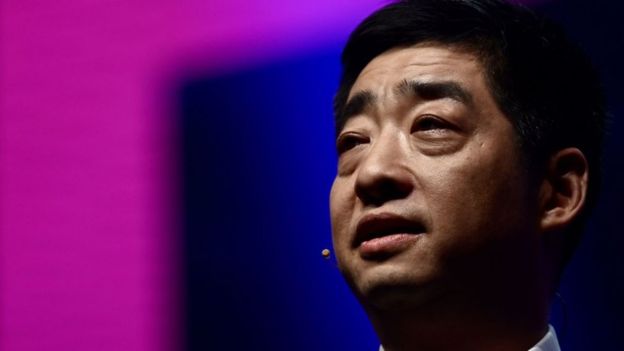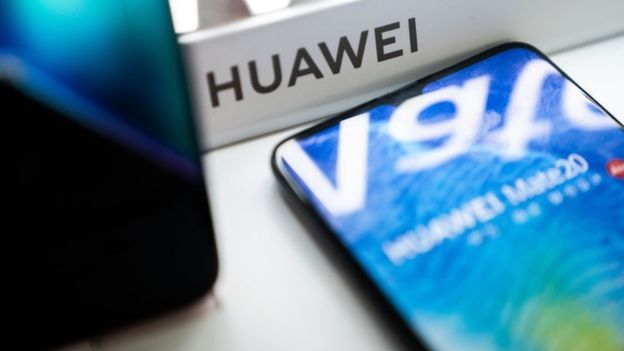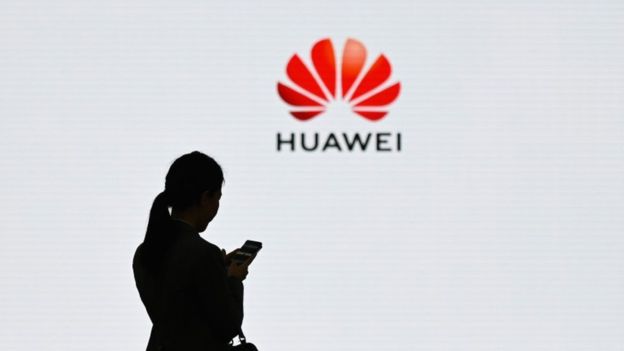Millions of Huawei cell phone owners face an uncertain future after Google’s announcement that they will not continue to provide their software to the Chinese company.
Huawei is now the second largest phone manufacturer in the world and is very popular with the public and specialists, who especially praise its cameras and the durability of the batteries.
Like most smartphones, they use Google‘s Android operating system, which in addition to providing the user interface gives customers access to a wide range of applications, including some very popular ones such as Google Play, Google Mail and Google Maps
Now all that is in danger after the announcement of Google, which is a response to the executive order issued by the president of the United States, Donald Trump, on May 15 by which prohibited American companies use services of telecommunications firms which “endanger the security of the country”.
This order was understood as a measure directed towards Huawei. This Monday, the US government announced that it will delay the imposition of sanctions on the Chinese company for three months to help its current customers. Thus, the Commerce Department temporarily restored Huawei’s ability to maintain its networks and offer software updates for its devices.
These are the consequences that the decision made by Google on Sunday may have:
1. Short term: no real change
What worries most about the news is security.
Android regularly publishes updates that make phones more secure against hackers and solve technical problems. And it is feared that they will run out.
But do not panic immediately because Android said the following in a statement: “We assure you that while we comply with all the requirements of the US government, services such as Google Play and the security of Google Play Protect will continue to work on their current Huawei devices ”
Google is working on the details, but informed the BBC that the devices will continue to offer the full Android experience, including access to the Google application store.
That is why the company is looking to carry out the support of the applications and operating systems of existing users at least in the short term.
That means that things should not change at all (at least not for now).
2. Medium term: uncertainty
There is less certainty in the medium term, and it is likely that this is precisely the most worrisome moment for the company and the users, as they have to wait to see what Google services will be blocked and when.
Google has not yet issued a statement with more data, but said it is “complying with the order [of Donald Turmp] and reviewing the implications.”
According to Reuters, the first media that published the news, applications that are updated through Google Play will continue to be updated for existing users. Instead, the operating system, which is updated through the device itself, may not be available when the new Android OS launches later this year.
If the latest Android update is blocked from the Huawei devices, it is likely that you can continue as before and only miss that last improvement.
Huawei said it will continue to provide security updates and after-sales services to all its Huawei and Honor smartphones and tablets (a subsidiary brand), covering those that have been sold or are still in stock worldwide. But it is not clear how he will carry out that plan.
How are the new cell phones that Huawei has just presented in the middle of its political crisis
However, the issue gets complicated with regards to security updates. The way that usually works is that Google gives Android makers the code for their software improvements about a month before they reveal the details to the public about the vulnerabilities they fix.
That gives manufacturers time to check that the patches do not cause problems for their own software, and then ask for a customized version in the form of a download.
Now Huawei can only know about those patches on the same day they are released in the Android Open Source Project (AOSP), the developer portal, which means there will be a delay before it can be distributed.
3. Long term: the problems
Las cosas serán mucho más predecibles a largo plazo, una vez que esté claro qué servicios de Google podrá utilizar Huawei.
Al igual que cualquier otra empresa, Huawei tendría acceso al código abierto de Android y podría utilizar el sistema operativo ofrecido a través de ese programa.
Pero parece poco probable que hacerlo por no tener acceso a las aplicaciones personalizadas de Google Play, lo que significa que los usuarios no pueden utilizar la amplia biblioteca de aplicaciones disponibles en el ecosistema de Android.
Huawei dijo anteriormente que está trabajando en su propio sistema operativo, basado en una versión pública de Android y que ya lo utiliza en el mercado chino.
Tal vez la próxima generación de los teléfonos de la empresa se ejecutará en ese sistema operativo, lo que significa que los clientes tendrán que tomar una decisión difícil: mantener sus teléfonos celulares Huawei y se acostumbran al nuevo ecosistema, o cambiar de marca y seguir usando Android.
Parece que esto podría tener un fuerte impacto en Huawei como una empresa porque los usuarios de teléfonos inteligentes modernos tienden a ser más leales a su sistema operativo que a la marca de su teléfono. Se tomará un dispositivo increíble para mantener a los usuarios alejados de Google Maps, Google Mail, Google Chrome y el gran número de aplicaciones de Google Play.
4. muy largo plazo: bueno para los consumidores?
El anuncio de Google causará sin duda problemas en las relaciones internacionales y podría tener efectos negativos en la colaboración tecnológica entre los gigantes de la industria.
Pero también podría aportar algo bueno a los consumidores. Android es, con mucho, el sistema operativo dominante, y obligar a otra importante empresa tecnológica a desarrollar y construir su propio sistema operativo para desafiarlo podría ser positivo.
En China, el mercado más grande de Huawei, los teléfonos celulares funcionan usando un sistema Android altamente modificado y no tienen aplicaciones de Google.
No es difícil imaginar a la empresa invirtiendo sus considerables fondos y experiencia en la creación de un sistema operativo capaz de superar Android.
Competir con la enorme biblioteca de aplicaciones en Google Play, sin embargo, será un gran desafío.















